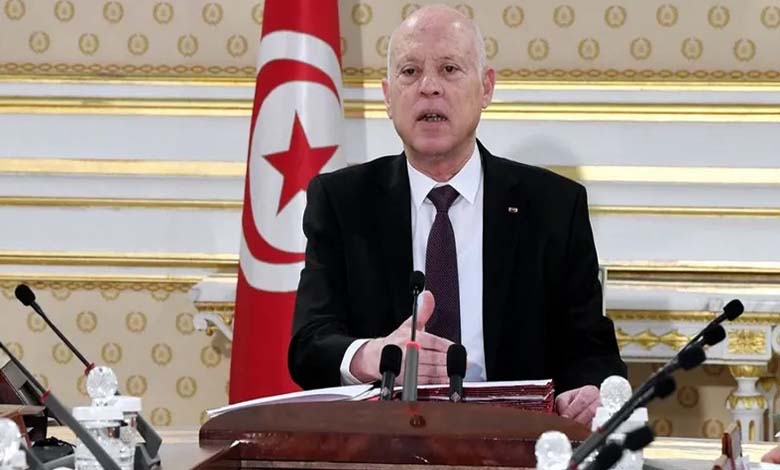Tunisia’s Brotherhood remnants under scrutiny… Saied: They have no place

The ousting of the Muslim Brotherhood from power in Tunisia did not mark the end of their influence—it was merely the beginning of a difficult process aimed at rooting out loyalists who still occupy key decision-making roles.
-
Tunisia’s Muslim Brotherhood and the Exploitation of the Palestinian Cause: A Fake Window for a Political Comeback
-
Rached Ghannouchi Rejects Remote Trial Appearance: Conspiracy 2 Case Shakes the Muslim Brotherhood in Tunisia
This ongoing effort continues to face challenges, particularly due to the thousands of appointments made during the Brotherhood’s time in power. These figures continue to obstruct reforms in government institutions and seek to create instability.
President Kaïs Saied has previously raised the alarm about this reality, denouncing the Brotherhood’s practices and exposing their plans to regain power.
He recently renewed his criticism of the Islamist movement and their entrenched networks within the state, accusing them of trying to stir unrest and undermine national stability.
-
As the election date approaches… Muslim Brotherhood in Tunisia intensifies efforts to disrupt
-
Who is Noureddine Bhiri, the mastermind of the Muslim Brotherhood in Tunisia, accused in the travel case after being sentenced?
“They have no place”
Speaking during a cabinet meeting at the Carthage Palace, Saied pointed to certain officials in the public administration, stating: “Those who are deliberately obstructing the implementation of projects are clearly aiming to provoke social unrest by any means possible.”
He added: “There is no place for these people in the state.”
Saied cited incidents such as the deliberate cutting of drinking water on the eve of Eid al-Adha, allegedly due to network issues, similar to what happened in 2024.
-
Saied is determined to eliminate the Muslim Brotherhood in Tunisia… Details
-
Its effects are no less than bombing Palestinian hospitals… Saied speaks about the corruption of the Brotherhood in Tunisia
He remarked sarcastically: “Apparently, the water network always collapses the night before Eid and miraculously recovers two days later. The same goes for electricity, which is frequently cut in various regions at random times. These kinds of practices are unacceptable.”
He called the situation abnormal and said full responsibility must be assigned to those attempting to exacerbate social tensions.
Saied stressed that “many government institutions and agencies are not operating in line with the state’s policies and laws,” warning: “Anyone who thinks they can obstruct the law is gravely mistaken.”
-
The Ennahdha Movement collapses… Crises hit the Muslim Brotherhood in Tunisia
-
Painful end for the Brotherhood in Tunisia… demands to dissolve Ennahdha movement after the arrest of Ghannouchi
He continued: “Some officials entrusted with the management of public institutions have failed in their duties. These individuals no longer have a place in the state. It is completely unacceptable that the head of state must personally intervene to resolve issues that should be handled by local authorities.”
According to political observers in Tunisia, Islamist elements still embedded in the state apparatus are implementing the Brotherhood’s agenda, aiming to destabilize the country in hopes of returning to political prominence.
-
The leaders of the Brotherhood in Tunisia before the judiciary.. The start of the investigations of “Deportation of Terrorist”
-
After the failure of the Brotherhood in Tunisia.. Is Kais Saied ending the legacy of Ennahdha and its corruption?
-
Ghannouchi before the courts… Terrorism Surrounds the Head of the Brotherhood in Tunisia












